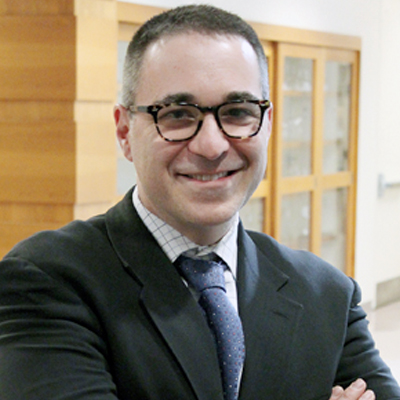Novel immunotherapy approaches to kill cancer cells and stimulate immune responses
One of the most important developments in cancer research in the last several years has been understanding that the immune system can in fact eradicate cancer cells. An oncolytic virus, a virus that preferentially infects and kills cancer cells, is an example of a new and effective strategy to directly target cancer cells while unleashing the immune system against them. Dr. Howard Kaufman, Professor of Surgery at Rutgers University, develops immunotherapy for melanoma using a particular oncolytic virus, or the herpes virus called T-VEC to render cancers “more appealing” to the immune system. Genetically engineered to prevent herpes infection, the herpes virus can not only attack and kill tumor cells directly, but also attract lymphocytes to the tumor lesion and thus help promote an immune response that can protect the entire body against the recurrence of cancer.
This approach becomes ever more powerful when combined with another form of immunotherapy, as early results from combination studies are demonstrating dramatic responses with over 50% of patients achieving objective responses with minor and short-lived side effects. An internationally recognized leader in the field of oncolytic virus immunotherapy, Dr. Kaufman developed the first recombinant virus for the treatment of melanoma, and now hopes to evaluate the virus in other types of cancer and in visceral lesions, study the combination with other agents and try to validate potential biomarkers that can predict which patients will respond to treatment. In order to deliver important findings to patients as quickly as possible, Dr. Kaufman and his team also collaborate with industries such as AMGEN and Viralytics in Australia, and maintain connections with not only other respectable universities in the US, but also study sites in Canada, UK, and South Africa.
Current research includes:
- Mechanisms of Anti-tumor Activity: Dr. Kaufman and his team are exploring the mechanisms of antitumor activity of oncolytic viruses including herpes virus and poxviruses. By studying how the virus mediates anti-tumor activity, kills cancer cells, and activates the immune system, Dr. Kaufman looks for ways to optimize immunotherapy using these viruses.
- Combination of Oncolytic Viruses with Other Forms of Immunotherapy: A promising treatment approach for immunotherapy is to combine the use of an oncolytic virus with another form of immunotherapy, like leveraging cytokines and T-cell checkpoint blockades, which have proven effective in the clinic. Preliminary work in animal models shows that combinatorial approach indeed improves outcomes, and the team is in the process of both trying to develop clinical trials to test this in patients and to understand how these drugs are working together to produce optimal results. By understanding how these drugs are stimulating the immune response, Dr. Kaufman hopes to gain more insight into which drugs would demonstrate most effectiveness when combined together.
- Interleukin 2: Dr. Kaufman and his team are Interested in understanding how Interleukin 2, a protein regulating the activities of white blood cells that are responsible for immunity, works as an immunotherapy agent.
- Reversing Suppression: Dr. Kaufman’s team has recently made a discovery in the lab that some of the oncolytic viruses may work by turning off a set of molecules that act as suppressors of the immune response. In this study, they identified a family of receptors that were found to be highly present in cancers and responsible for shutting down the immune response. Currently, the team is studying ways to reverse this suppression by blocking the receptors.
Bio
Dr. Howard Kaufman was recruited to the Rutgers Cancer Institute of New Jersey in 2014 to join an established team of doctors and scientists who have dedicated themselves to finding new treatments and provide the highest quality of care for patients with melanoma and related skin cancers. Dr. Kaufman has had a long-standing interest in using the immune system to fight cancer and is excited about working with the surgeons, medical oncologists, dermatologists, pathologists, radiologists and scientists in New Jersey to provide the most comprehensive care for patients with melanoma and other advanced forms of skin cancer. Detecting these cancers early can lead to complete cures, and Dr. Kaufman is working with his colleagues in dermatology to ensure that they are at the forefront of skin cancer screening and prevention. Once these cancers spread they can be very challenging to cure. Dr. Kaufman’s personal philosophy is that we need a team to battle the cancer and work with the skin cancer experts at the center along with patients and their families to develop a personal approach that is appropriate for each individual patient.
When he was in college, Dr. Kaufman watched his grandfather succumb to cancer and became curious about how this disease developed and even more interested in how to cure it. During his training he was exposed to a lab that studied the immune system and saw the potential power of harnessing host immunity to treat cancer. Once in the lab, Dr. Kaufman was unable to stop thinking about why some patients with cancer do so well with treatments while others do not. His wonder and enthusiasm for research and pushing for the next best thing for his patients keeps him interested and productive.
Outside of research, Dr. Kaufman is a classical pianist who loves to cook.
For more information, visit http://cinj.org/researcher-profiles/index?id=734
In the News
Awards
Wings of Hope Humanitarian Award, 2008
Melanoma Research Foundation
Honorary Member, 2000
Venezuelan Society of Internal Medicine
Lalezari Award for Research Excellence, 1998
Fannie E. Rippel Foundation Award, 1997
Clinical LRP Award, 1995
National Institutes of Health
Lester F. Williams, M.D. Teaching Award, 1995
Boston University
Daland Award, 1992
New England Cancer Society
Patents
U.S. Provisional Patent Application (Docket No. 5199-49): "A composition for delivering a therapeutic agent to a neoplastic cell."
Submitted February 27, 2003. Kaufman, H. and Bereta, M.
U.S. Provisional Patent Application No. 60/429,611: "A new mouse model for evaluating the immunotherapy of human colorectal cancer."
Filed November 26, 2002. Kaufman, H. and Hoerig, H.
Serial No. 10/873,032: "Novel Recombinant Poxvirus Composition and Uses Thereof."
Filed June 21, 2003. Kaufman, H. and Flanagan, K.
U.S. Provisional Patent Application No. 14767105: "Pseudomonas Exotoxins for Cancer Treatment."
Filed August 11, 2015. Kaufman, H., Ruby, C. and Shafikhani, S.


